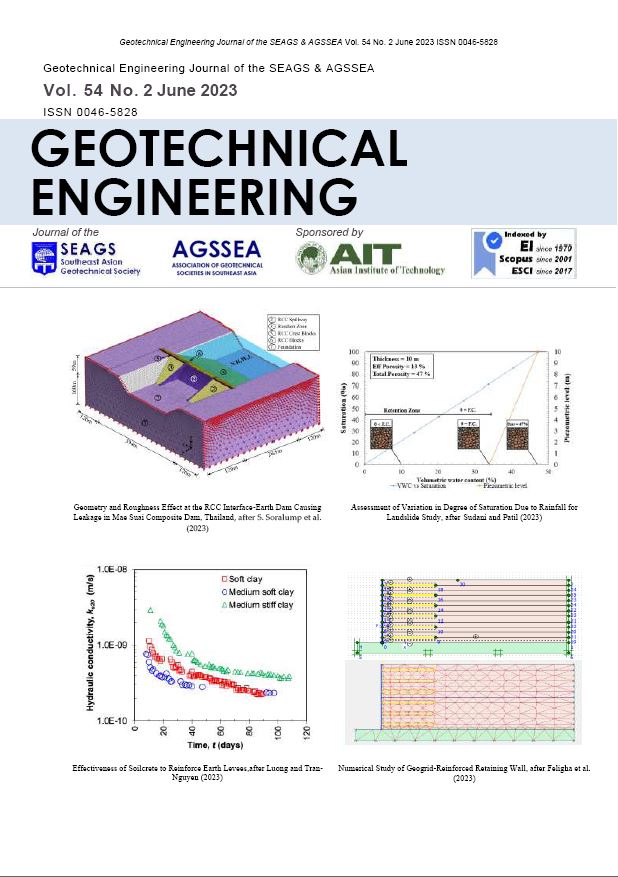Assessment of Variation in Degree of Saturation Due to Rainfall for Landslide Study
Main Article Content
Abstract
A landslide is a mass movement of the earth under gravity due to natural or man-made triggering events. Foremost of the landslides in humid countries like India are rainfall-induced landslide movements. Rainfall tends to infiltrate into the slope, leading to the recharge of the soil mass with water, which depends on the void present in the medium. This water content in the slope mass alters the slope-forming soil’s properties in many ways, i.e., increasing the weight of the slope soil, reducing the soil strength, increasing pore water pressure, and changes in the geotechnical properties of the soil mass. Numerous models are available for predicting landslides based on water present in the soil. However, the link between rainfall precipitation and corresponding real-time monitoring of water stored in the soil system is still missing. Variation in the saturation is required to be assessed corresponding to rainfall events. The present study aims to monitor the variation in the degree of saturation in the soil mass corresponding to rainfall. The leaky barrel concept is used to model the test set-up for deriving the saturation evolution in the soil mass. The output of the research interpretation successfully mapped the variation in the water saturation for the soil mass associated with rainfall events.
Article Details

This work is licensed under a Creative Commons Attribution-NonCommercial-NoDerivatives 4.0 International License.
Copyright © 2019 Association of Geotechnical Societies in Southeast Asia (AGSSEA) - Southeast Asian Geotechnical Society (SEAGS).


